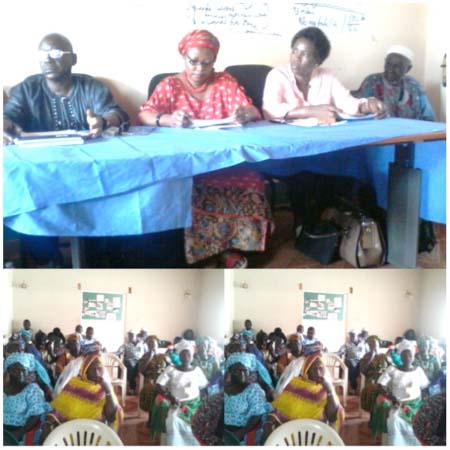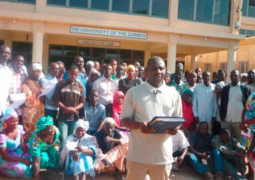
(Friday September 02, 2016 Issue)
The
Department of Fisheries, in partnership with the Food and Agriculture
Organisation (FAO), has organised a three-day training for Try Oyster
Association at old Jeshwang.
Held
from 1 to 3 September 2016, the training was designed to enlighten oyster and
cockle harvesters on improved handling, processing and preservation techniques.
It
was funded under the project for the development of artisanal fisheries in The
Gambia.
Sira
Njie-Sanyang of FAO said the training would go a long way in enhancing the
capacity of oyster and cockle harvesters.
The
training was designed to strengthen the capacity of oyster harvesters,
processors and traders in improved handling, processing and preservation
methods to increase production. It will
also help them to reduce post-harvest losses, produce high quality processed
oysters/cockles, improve food security and increase their income.
Mrs
Njie-Sanyang noted that the training was one of the activities implemented
under the FAO-funded TCP project on the development of artisanal fisheries in
The Gambia.
Matarr
Bah, director of Fisheries at the Ministry of Fisheries, pointed out that the
performance of the artisanal fisheries sector has been declining.
The
sector’s contribution to socio-economic development of The Gambia especially as
it relates to employment creation, generation of revenue and foreign exchange
earnings, poverty alleviation and improvement of nutritional standards of the
population has been diminishing over the years.
“This
is what led them to request for support for the development of the artisanal
fisheries sub-sector,” Mr Bah said.
He
explained that the request was even prompted by the fact that there had been
grave concerns over the declining performance of the fisheries sector.
The
director of Fisheries said the objective of the artisanal fisheries project is
to build the capacity of fisher folks on improved fishing techniques and the
equitable exploitation and utilisation of fisheries resources.
Kumba
Jassey, one of the participants, hailed the efforts of the Department of
Fisheries and FAO for coming up with “this laudable initiative” on fish
handling, processing and preservation techniques.




